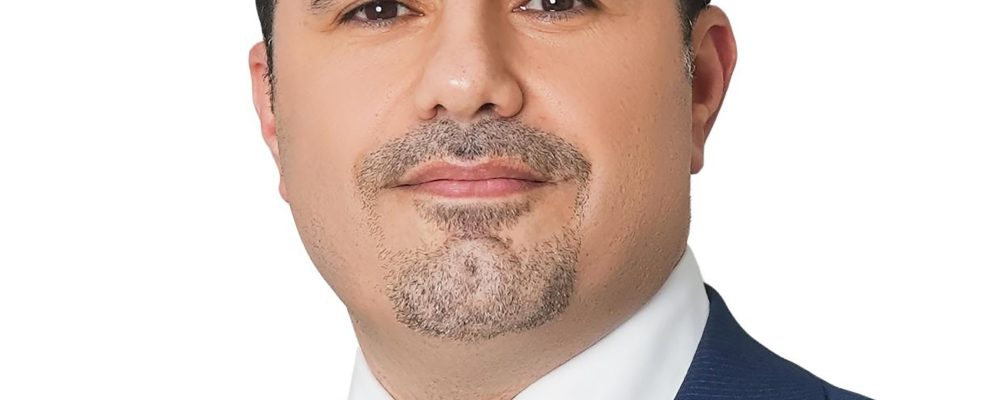Medcare Hospital Al Safa successfully treated a patient with complex recurrent stage III haemorrhoids using an innovative minimal invasive procedure. Despite undergoing a previous surgical procedure, the patient endured years of pain, bleeding and other debilitating symptoms that severely impacted his quality of life. Dr. Saher Arour, Consultant Vascular Surgeon at Medcare Hospital, described this novel treatment – endovascular embolization of the superior rectal artery – as the first of its type in the Middle East and Africa region.
Dr. Arour estimates prevalence of 4.4 percent to 39 percent of the UAE residents are affected by hemorrhoidal diseases, which can be attributed to factors like inadequate nutrition and sedentary lifestyles, such as prolonged sitting. Pregnant women often develop hemorrhoids. Men are more likely than women to develop hemorrhoids because they spend more time sitting, lifting and moving heavy objects, and straining when using restrooms. Furthermore, anal and rectal problems occur in conjunction with underlying health issues such as inflammatory bowel disease or other hereditary health conditions.
The 34-year-old patient had been suffering from anal pain, edoema, bleeding, itching, and trouble passing stool for three months. Despite having done a hemorrhoidectomy four years ago and trying multiple medications, his symptoms lingered and worsened.
An anoscopy was performed by the multidisciplinary team from Medcare Hospital Al Safa, which included a vascular surgeon, Dr. Saher Arour, skilled in minimally invasive treatments and a proctologist, Dr. Khaldoun Ghareb, specialising in anorectal disorders, to rule out other possible sources of the haemorrhage and confirm the diagnosis. After ascertaining from the anoscopy that the patient had stage III haemorrhoids with anal stenosis, which required a manual reduction, the team decided that the best course of treatment for the patient was a minimally invasive endovascular embolization of the superior rectal artery.
Speaking on the patient’s condition, Dr. Gharebcommented, “The patient’s condition upon admission was quite severe. He had extreme difficulty passing stool and was suffering from recurrent symptomatic stage III haemorrhoids with anal stenosis which is a condition in which the anus cannot open normally to pass waste out.His symptoms had not responded to conventional treatments.”
Elaborating on the team’s innovative procedure, Dr. Arour, Consultant Vascular Surgeon at Medcare Hospital Al Safa, said, “Endovascular embolization was deemed the way to go although it was considered novel as it had never been performed in the region before. It involves using a catheter to block the blood vessels feeding the haemorrhoids, effectively reducing blood flow and causing them to shrink.”
In cases when conservative measures prove ineffective, endovascular embolization, also known as Emborrhoid( innovative non-surgical) technique has emerged as a new treatment option for patients with chronic hemorrhoidal disease. Compared to a surgical haemorrhoidectomy, this method usually results in less tissue disruption and a quicker healing period.
Doctors used an ultrasound guided puncture of the common femoral artery to insert a catheter into the superior rectal artery branches. The location of the catheter and the blood vessels supplying the haemorrhoids were confirmed by an angiography. The arteries were subsequently constricted to restrict blood flow, and a second angiography confirmed the success of the procedure.
“The procedure was completed without any complications and the patient experienced immediate relief from his symptoms. He was able to use the restroom normally almost immediately after the surgery. His current prognosis is excellent, and we expect a full and lasting recovery,” said Dr. Saher.
Following the successful procedure, the patient expressed relief, saying, “I am incredibly grateful to Dr. Arour, Dr. Ghareb, and the entire team at Medcare Hospital Al Safa for their expertise and care. They have made a significant difference in my life, and I am finally free from the pain and discomfort that plagued me for years.”
Regarding methods of preventing or managing the condition, Dr. Khaldounremarked, “Eating a diet rich in fruits, vegetables, and unprocessed grains can increase stool bulk and soften it, reducing strain on the rectum and anus. Combined with regular exercise, staying hydrated, and practising hygienic restroom habits, these steps can effectively prevent and manage haemorrhoids.”
The multidisciplinary evaluation process from Medcare Hospital Al Safa ensured a comprehensive assessment of the patient’s condition and facilitated the selection of the most appropriate treatment for the patient.
The patient is now recovering well and has experienced significant improvement in his symptoms. Medcare Hospital Al Safa continues to monitor his progress, ensuring that he maintains his improved condition and can lead a healthy, pain-free life.



